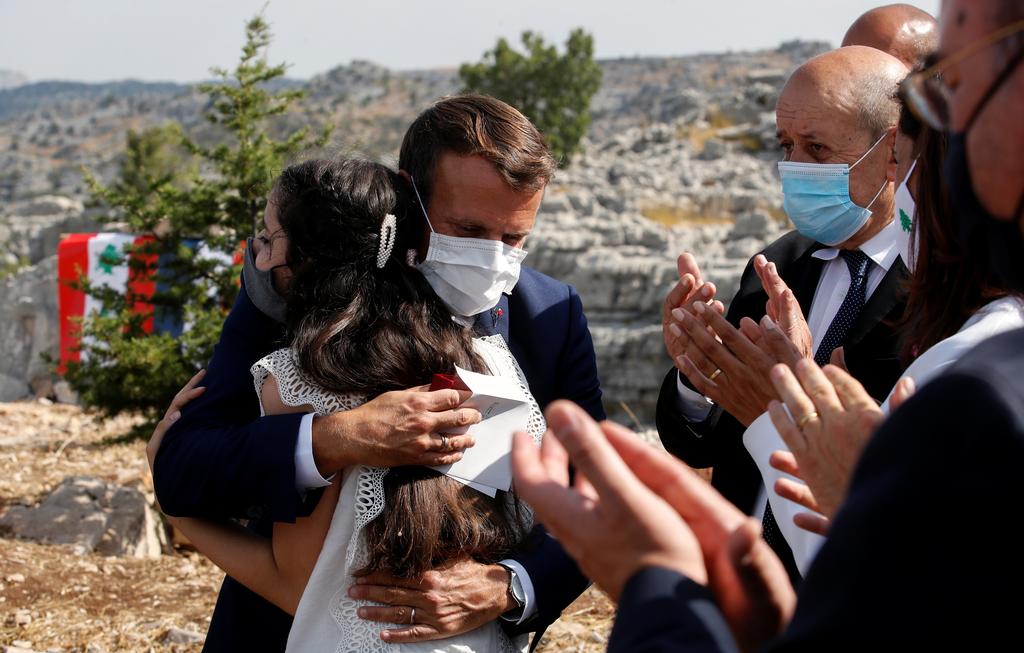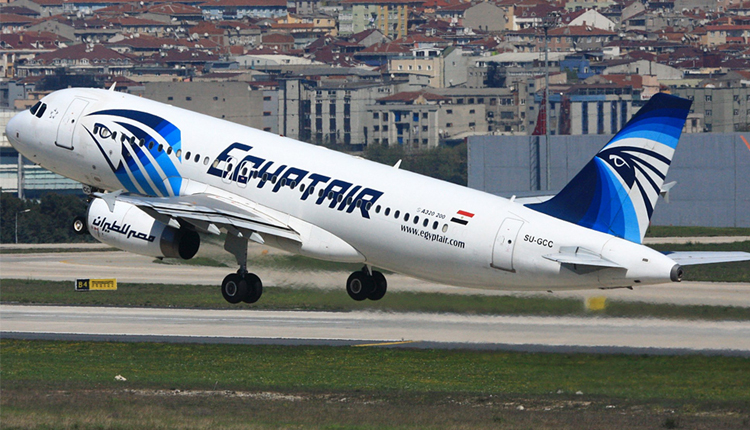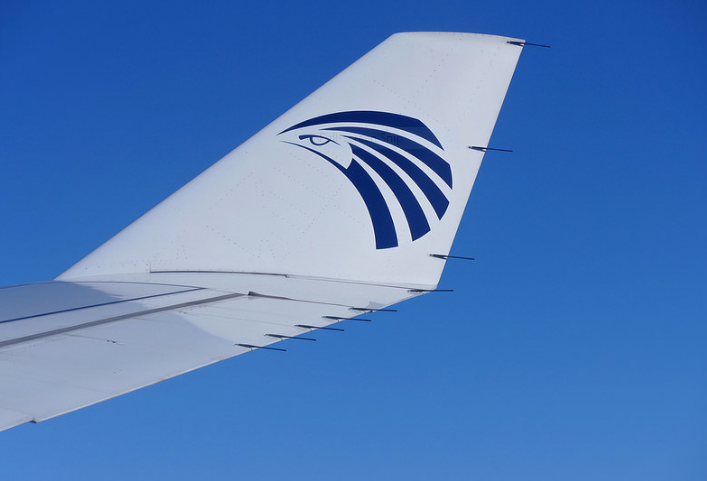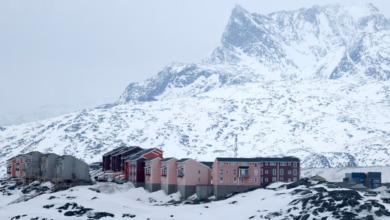
BEIRUT (Reuters) – French President Emmanuel Macron has warned Lebanese politicians they risk sanctions if they fail to set the nation on a new course within three months, stepping up pressure for reforms in a country collapsing under the weight of an economic crisis.
Visiting for the second time in less than a month, Macron marked Lebanon’s centenary by planting a cedar tree, the emblem of a nation that is facing its biggest threat to stability since the 1975-1990 civil war.
“It’s the last chance for this system,” Macron told POLITICO in an interview while traveling to Beirut on Monday. “It’s a risky bet I’m making, I am aware of it … I am putting the only thing I have on the table: my political capital.”
Macron said he was seeking “credible commitments” and a “demanding follow-up mechanism” from Lebanon’s leaders, including a legislative election in six to 12 months.
Should they fail to shift direction in the next three months, he told POLITICO, punitive measures could be imposed, including withholding bailout money and sanctions on the ruling class.
Lebanese politicians, some of them former warlords who have overseen decades of industrial-scale corruption, face a daunting task with an economy in meltdown, a swathe of Beirut in tatters after the Aug. 4 port blast and sectarian tensions rising.
Hours before he arrived on Monday, a new prime minister was designated, Mustapha Adib, following a consensus among major parties forged under pressure from Macron over the weekend.
Macron said he would use his weight to press for the formation of a new government. Without reforms, funds pledged at a 2018 donor conference in Paris would not be released, he said.
Macron visited Beirut in the immediate aftermath of the port explosion that killed more than 190 people and injured 6,000.
Macron said in Beirut that the international community must stay focused on the emergency in Lebanon for six weeks and that he was ready to help organize an international conference, in coordination with the United Nations, in mid to late October.
“I am ready to host it in Paris,” he said.
SHOW OF CONFIDENCE
Earlier, Macron planted a cedar sapling at a forest reserve in the mountains northeast of Beirut. The Elysée palace said this was to show Macron’s “confidence in the future of the country”.
The French air force display team flew overhead, leaving smoke trails of red, white and green, the national colors of Lebanon whose borders were proclaimed by France 100 years ago in an imperial carve-up with Britain. It gained independence in 1943.
Macron, who has been at the center of international efforts to press Lebanese leaders to tackle corruption and take other steps to fix their country, began his trip late on Monday by meeting Fairuz, 85, one of the Arab world’s most famous singers whose music transcends Lebanon’s deep divisions.
He was greeted by dozens of protesters outside her home with placards reading “No cabinet by, or with, the murderers” and “Don’t be on the wrong side of history!”
Macron toured the devastated Beirut port and met President Michel Aoun for a centenary reception. He will also meet Lebanon’s main factions.
Lebanon’s economic crisis is rooted in decades of state corruption and waste that landed the state with one of the world’s heaviest public debt burdens.
Since October, the currency has collapsed and depositors have been frozen out of their savings while the real value of those deposits has collapsed in a paralyzed banking system. Poverty and unemployment has soared in a nation that already hosts the world’s largest number of refugees per capita.
“Today everything is blocked and Lebanon can no longer finance itself,” Macron said, adding that the central bank and banking system were in crisis and an audit was needed.
“There is likely money that has been diverted. So we need to know the truth of the numbers, so that judicial actions can then be taken.”
Reporting by Raya Jalabi; Additional reporting by Michel Rose and Matthieu Protard in Paris; Writing by Tom Perry and Raya Jalabi; Editing by Edmund Blair
Image: French President Emmanuel Macron hugs blast victim Tamara Tayah as he attends a ceremony to plant a cedar with members of the NGO Jouzour Loubnan in Jaj, near Beirut, Lebanon September 1, 2020. REUTERS/Gonzalo Fuentes/Pool




